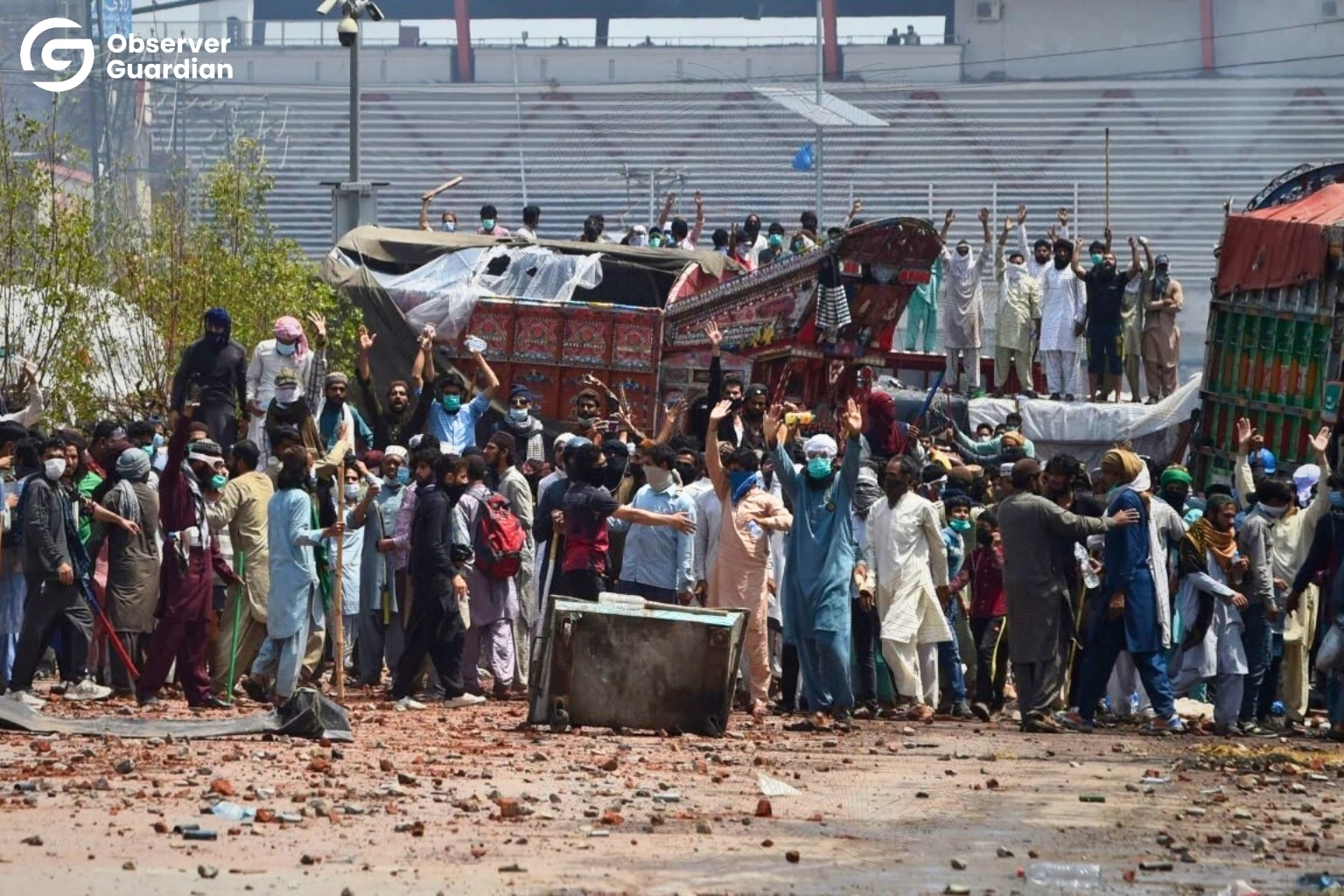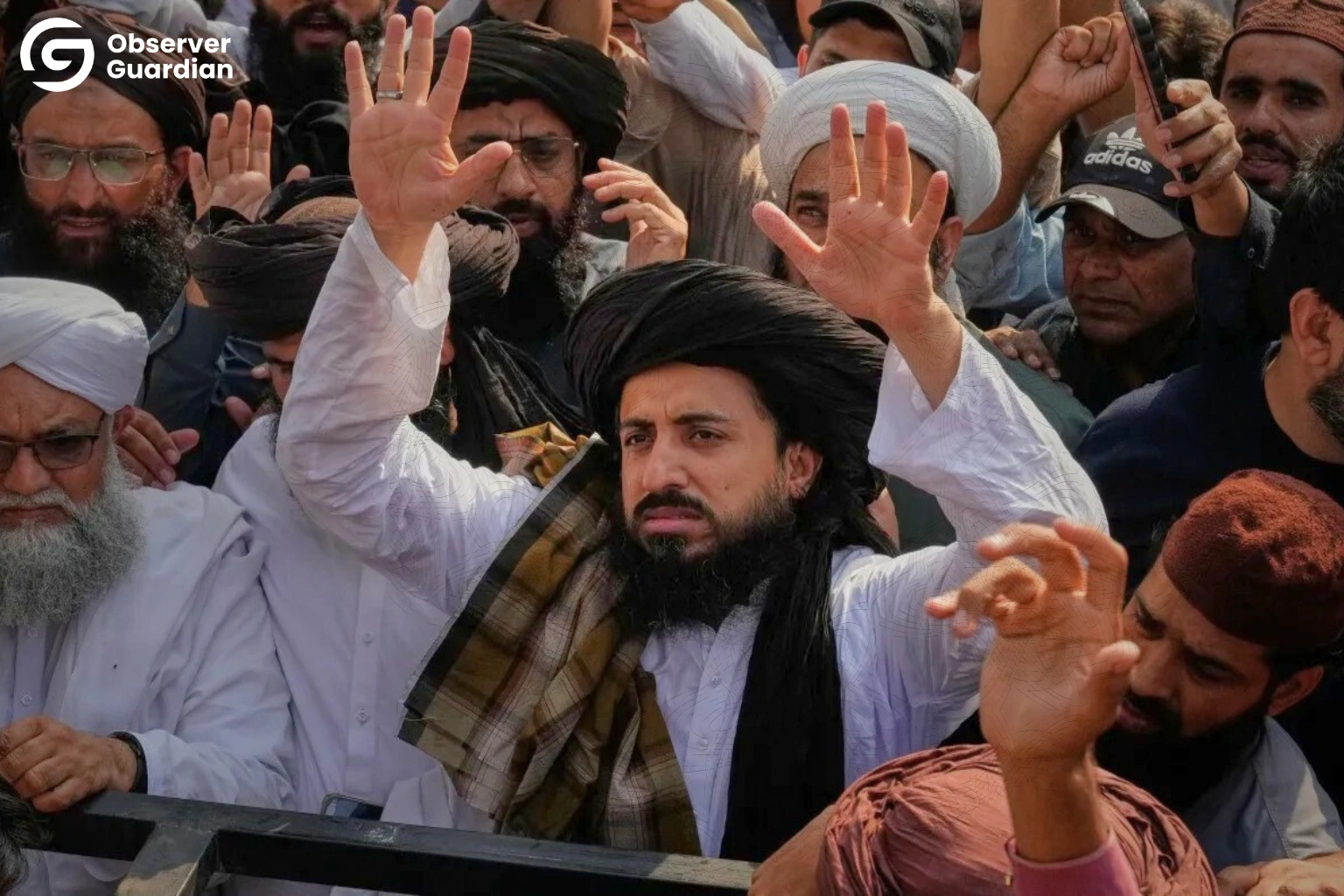The Tehreek-e-Labbaik Pakistan (TLP) has turned into one of the most disruptive forces in the country’s politics. What started as a movement claiming to defend religious honor has over time become a symbol of how violence and intimidation can be used to push political goals.
It is troubling because every time the TLP takes to the streets, it puts Pakistan’s democratic values to the test.
TLP’s protests are rarely peaceful. They shut down cities, damage public property, and clash with police. Such kind of behavior chips away at democracy because it replaces dialogue with threats. When governments give in to mobs instead of sticking to law and process, it signals weakness. It tells every group that brute force can get results. If Pakistan wants to strengthen its democracy, it has to draw a clear line that political disagreements belong in parliament and courts, not in violent street battles.
Strategic tactics of TLP
Moreover, the group’s real strength comes from how it plays with people’s emotions. TLP knows that religion runs deep in Pakistani society. It wraps its politics in faith and paints every critic as an enemy of religion, which is dangerous. It divides people, fuels hate, and leaves little space for reasonable debate. The state’s job is to protect the right to believe, not to let anyone exploit that belief for power. Thus, promoting unity through education, dialogue, and fair governance is the only way to blunt this kind of manipulation.

TLP challenges state’s authority
Further, another big concern is how TLP challenges the state’s authority. Every time they protest, they test the government’s ability to enforce orders. Too often, the response has been inconsistent sometimes harsh, and sometimes appeasing. Extremist groups notice when the state hesitates to maintain law and order. So, to keep credibility, the government must show that no one, regardless of their cause, can take the law into their own hands.
Likewise, the violence TLP stirs up does not only target the state, but it also hits ordinary people the hardest. When roads are blocked, schools are closed, and shops burn, it is the regular citizen who suffers. Chaos violates their basic rights to safety, mobility, and work. Hence, there must be accountability. Arrests and investigations should not be selective or symbolic. Justice must be real and visible, so that people start believing that violence will not go unpunished.
Public protests and erosion of social fabric of country
Additionally, what is sad is how these protests tear the country’s social fabric. TLP claims to act for religion, but in practice, its actions deepen mistrust between communities. It encourages intolerance and drowns out moderate, peaceful voices. Pakistan needs to rebuild social cohesion through education, local engagement, and support for moderate scholars and clerics who preach harmony instead of hate.
Global perspective about Pakistan
Similarly, there is also a global angle about Pakistan. Every time images of violent mobs and clashes hit international news, Pakistan’s image takes a hit. Investors and foreign governments start seeing the country as unstable or unsafe. This kind of image hurts the economy of Pakistan and undermines its diplomatic efforts.
If the government shows consistency and strength in handling such groups, it not only stabilizes the country internally but also restores credibility abroad.
TLP and its threat to Pakistan
Besides, TLP is not just an inconvenience, it is a recurring threat to peace and stability. Their protests are not spontaneous, rather they are calculated. The chaos they create distracts from real national issues and drains state resources. It is time the government stopped treating each protest as an isolated crisis and started seeing the bigger pattern. Hence, a clear long-term strategy is needed a shift in law enforcement coupled with public education to make extremist tactics less appealing.
Reason behind TLP’s popularity
However, one of the reasons TLP keeps gaining ground is because they rarely face serious consequences. Every time a protest ends in negotiation or concession, it sends a message that the state can be pressured. Such sense of impunity spreads fast. So, the government has to break that cycle by standing firm and following through legal action. It is not about targeting one group, but about showing that violence will not be tolerated.
Moving forward, ordinary people are tired of living under the constant threat of unrest. Each round of protests brings fear, lost income, and uncertainty. For Pakistan to move forward, the state must guarantee stability and security. It means better policing, stronger intelligence networks, and more trust between the public and institutions that protect them. Thus, people should feel that the government can keep order, not just react when things spiral out of control.
In the bigger picture, TLP is part of a broader problem. There are groups which thrive on chaos and want to pull Pakistan away from its constitutional path into a place where mob emotion rules over law. It is not only dangerous but also unsustainable. The government’s duty is to protect the country from sliding in that direction. This means not only clamping down on violence but also working on long-term reforms like improving education, countering extremist propaganda, and encouraging civic participation that focuses on progress, not paranoia.
In short, when one looks at it all together, the TLP story is a warning. It shows what happens when the state allows religion to be mixed carelessly with politics and fails to respond firmly to those who use violence in its name. Pakistan cannot afford to keep repeating that mistake. The country needs steady leadership, a clear moral compass, and a justice system that treats everyone equally. Only then, can it move towards a future where political expression does not mean destruction, and faith is not a weapon.
⚠ Disclaimer
The views and opinions expressed in this article are exclusively those of the author and do not reflect the official stance, policies, or perspectives of the Platform.







